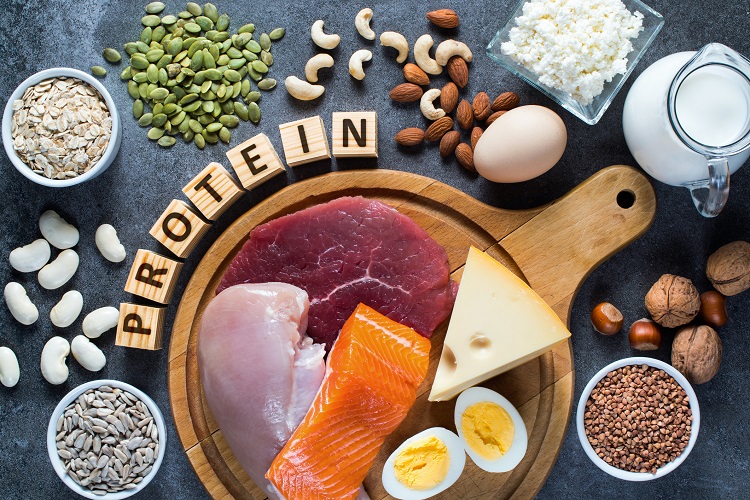
In every European supermarket, you will find a variety of high-protein products. The high-protein food trend is a success. From high-protein chocolate bars to high-protein yogurts, this is a significant development. While the health benefits of a high-protein diet are widely known, its potential dangers have only recently come to light.
FoodNavigator recently published a report on the potential of dietary fiber consumption. Heart Damage Caused by High Protein Diet. Then came the news of the upcoming elections. Protein bars and powders can be harmful to the gutA new study has examined the possible link between high-protein diets and brain damage.
Does a high protein diet harm the brain?
A study from the University of Geneva suggests that a high-protein diet could lead to neurological disorders. In a study published in the Journal of Biological Chemistry, it was found that high protein intake significantly increases ammonium levels in the body. This can lead to neurological problems.
Why is high protein diet encouraged?
High protein diets have many health benefits, including increased energy levels and weight loss. This is why high protein diets are so popular.
Type 2 diabetic patients are often advised to eat protein-rich foods to maintain healthy blood sugar levels. The researchers wanted to know what effects high-protein diets have on other parts of the body.
“Diets rich in animal and/or plant proteins can help regulate type 2 diabetes and weight,” says Pierre Maechler. He is a professor in the Department of Cellular Physiology and Metabolism at the Faculty of Medicine of the University of Geneva. Pierre Maechler has conducted research on the possible damage that a high-protein diet could cause to the brain. “But what effect do they have? Do they cause damage? We decided to investigate.”

What was the methodology of the study?
Ammonium, a waste byproduct, is produced when glutamate (GDH) breaks down proteins. When a high-protein diet is consumed, glutamate is stressed. To study this impact, Professor Maechler's team fed mice with and without GDH in the liver a high-protein diet.
. The researchers found that in mice with healthy livers, excess protein led to the formation of ammonium. This was handled by the enzyme GDH which detoxifies ammonium before its harmful effects.
Mice lacking glutamate dehydrogenase, on the other hand, found that their livers were unable to remove toxic ammonium from proteins. be seen almost immediately
The study's first author, Karolina Luczkowska (a former PhD student in the Department of Cellular Physiology and Metabolism at the Faculty of Medicine, University of Geneva), said: "You don't have to wait weeks or weeks or even months to see the effects. A change in diet for a few days will be enough."
This study suggests that high protein diets can cause excess ammonium when glutamate dehydrogenase is malfunctioning. The liver cannot eliminate this ammonium and this could lead to further damage to the body, including neurological damage.
Researchers recommend that anyone considering a high-protein diet have a blood test to determine their liver's glutamate dehydrogenase levels. This would prevent overloading the metabolic system with proteins, especially for those who lack the glutamate enzyme. Pierre Maechler concludes that it is important to do your research before embarking on a high-protein diet.
Defects of the study
This study, like many other scientific studies, was done on mice, not humans. Why are there so many scientific studies on mice?
The same organs, systems, and diseases affect mice as they do humans. This makes mice excellent models of human disease. that encode proteins. Researchers can examine mice and humans for differences or similarities (such as symptoms or variations in DNA) that might be medically or clinically important.
The Journal of Biological Chemistry report also does not specify the types of proteins consumed. Was it animal, plant or both? This could have an impact on the result.
Source: The amount of protein consumed affects energy and nitrogen levels, requiring the liver to produce glutamate dehydrogenase in order to maintain its activity.
Publication date: June 13, 2024
DOI: https://doi.org/10.1016/j.jbc.2024.107473
Authors: Karolina Luczkowska. Yan Zhou. Angela M. Ramos.

